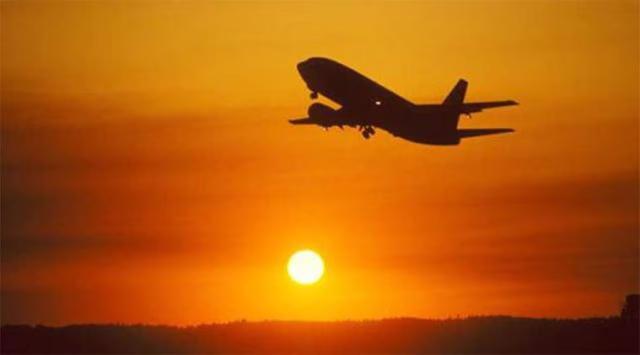
Class 12 Physics & Math Requirement for Becoming Commercial Pilot Might be Scrapped: Report
The Directorate General of Civil Aviation (DGCA) is planning to scrap the current rule that requires students to have studied Physics and Math in Class 12 to be eligible for commercial pilot licence training. In India, commercial pilot training has been restricted to Science and Math students since the mid-1990s, as per Times of India.
The move is expected to bring about a significant change in the aviation industry, as it will open up new opportunities for students from various streams to pursue a career as a commercial pilot. Currently, students who wish to become commercial pilots are required to have studied Physics, Chemistry, and Math in Class 12, as these subjects are considered essential for understanding the principles of aerodynamics and aircraft systems.
However, the DGCA is now considering relaxing this rule, which would enable students from non-science streams, such as Arts and Commerce, to pursue commercial pilot training. This decision is likely to be welcomed by students who may not have had the opportunity to pursue a career in aviation due to the existing restrictions.
The decision to scrap the Physics and Math requirement is reportedly based on the fact that the DGCA has changed its stance on the importance of these subjects for becoming a commercial pilot. The regulator has realized that the core skills required to become a commercial pilot are not necessarily based on the subjects studied in Class 12, but rather on the pilot’s ability to learn and apply theoretical knowledge in a practical setting.
Additionally, the DGCA has also taken into account the changing nature of the aviation industry, which requires pilots to have a range of skills, including communication, teamwork, and problem-solving. These skills are not necessarily linked to the subjects studied in Class 12, but rather require a more holistic approach to learning and development.
The decision is also likely to be influenced by the growing demand for commercial pilots in the industry. With the aviation industry experiencing rapid growth, there is a shortage of trained pilots to meet the demand. By relaxing the Physics and Math requirement, the DGCA hopes to increase the pool of potential pilots, which would help to address the shortage and meet the growing demand for commercial pilots.
The move is also expected to bring about a more inclusive approach to pilot training, as it will enable students from diverse backgrounds to pursue a career in aviation. This could lead to a more diverse and inclusive pilot workforce, which would be beneficial for the industry and passengers.
However, the decision is not without its challenges. The DGCA will need to put in place a new system to assess the aptitude and skills of students from non-science streams, which could be a complex and time-consuming process. Additionally, the regulator will need to ensure that the training provided to these students meets the required standards, which could require significant investments in infrastructure and resources.
Despite these challenges, the decision to scrap the Physics and Math requirement is likely to be welcomed by students who have been unable to pursue a career in aviation due to the existing restrictions. It is also likely to bring about a more inclusive and diverse pilot workforce, which would be beneficial for the industry and passengers.
As the DGCA moves forward with this decision, it is likely to have a significant impact on the aviation industry in India. It will be interesting to see how this change plays out, and what the implications will be for students and the industry as a whole.
Source:






